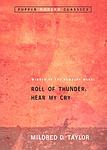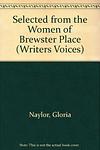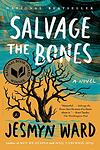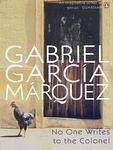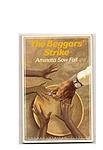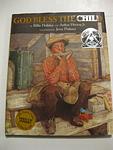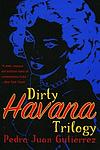The Greatest "Poverty, Fiction, Social & Cultural Fiction" Books Since 1950
Click to learn how this list is calculated.
This list represents a comprehensive and trusted collection of the greatest books. Developed through a specialized algorithm, it brings together 300 'best of' book lists to form a definitive guide to the world's most acclaimed books. For those interested in how these books are chosen, additional details can be found on the rankings page.
Genres
The category of "Poverty" in books refers to stories that explore the experiences of individuals or communities living in poverty. These books may examine the social, economic, and political factors that contribute to poverty, as well as the personal struggles and triumphs of those living in poverty. They may also shed light on the inequalities and injustices that exist within society and the impact they have on marginalized communities. Overall, books in this category aim to raise awareness and understanding of poverty and its effects on individuals and society as a whole.
Social & Cultural Fiction is a literary category that encompasses novels and stories that delve into the complexities of society and culture, exploring themes such as class, race, gender, and identity within specific social contexts. These narratives often provide a lens through which readers can examine the intricacies of human relationships and the impact of cultural norms and societal structures on individuals and communities. By offering a fictional yet reflective portrayal of real-world social dynamics, this genre invites readers to gain a deeper understanding of the diverse experiences that shape our world. Authors in this category frequently use their characters and settings to comment on contemporary issues, challenge prevailing ideologies, and provoke thought about the possibility of social change, making Social & Cultural Fiction a powerful tool for empathy and a mirror for the ever-evolving human condition.
Countries
Date Range
Reading Statistics
Click the button below to see how many of these books you've read!
Download
If you're interested in downloading this list as a CSV file for use in a spreadsheet application, you can easily do so by clicking the button below. Please note that to ensure a manageable file size and faster download, the CSV will include details for only the first 500 books.
Download-
1. The Color Purple by Alice Walker
Set in the early 20th century, the novel is an epistolary tale of a young African-American woman named Celie, living in the South. She faces constant abuse and hardship, first from her father and then from her husband. The story unfolds through her letters written to God and her sister Nettie, revealing her emotional journey from oppression to self-discovery and independence, aided by her relationships with strong women around her. The narrative explores themes of racism, sexism, domestic violence, and the power of sisterhood and love.
-
2. One Day in the Life of Ivan Denisovich by Aleksandr Solzhenitsyn
This novel provides a detailed account of a single day in the life of a prisoner, Ivan Denisovich, in a Soviet labor camp in the 1950s. The narrative follows Ivan as he navigates the harsh realities of his daily routine, from the moment he wakes up to when he goes to bed. The book provides a stark portrayal of the brutality and inhumanity of the Soviet gulag system while also highlighting the resilience and dignity of the human spirit under such oppressive conditions.
-
3. A Fine Balance by Rohinton Mistry
"A Fine Balance" is a poignant narrative set in India during the 1970s, a time of political turmoil and upheaval. The plot revolves around four diverse characters - a widow, a young student, and two tailors - who are brought together by fate. Through their interconnected lives, the book explores themes of caste, poverty, political corruption, and the human spirit's resilience. It offers a profound exploration of the delicate balance that sustains life amidst adversity.
-
4. The Bluest Eye by Toni Morrison
The novel is a poignant tale of an African American girl named Pecola Breedlove who grows up during the years following the Great Depression. Living in a society that values beauty in terms of light skin and blue eyes, Pecola develops an inferiority complex and wishes for blue eyes, believing that it would make her beautiful and loved. The story explores themes of racial self-loathing, the standards of beauty, and the dynamics of power and oppression.
-
5. Roll of Thunder, Hear My Cry by Mildred D. Taylor
Set in Mississippi during the Great Depression, this novel follows the life of a young African American girl and her family who are struggling to maintain their integrity, pride, and independence in the face of racism and social injustice. The family owns a piece of land which provides them some protection from the harsh realities of racial discrimination. The story is a poignant exploration of how they navigate through a prejudiced society, face social and economic challenges, and fight to keep their land.
-
6. Nectar in a Sieve by Kamala Markandaya
"Nectar in a Sieve" is a tale of an Indian peasant woman named Rukmani who endures the hardships of rural poverty, natural disasters, and personal tragedy, while trying to raise her children and maintain her marriage. The book explores themes of love, hope, and the strength of the human spirit against the backdrop of a rapidly changing India. Despite the constant struggles, Rukmani never loses her faith and hope, symbolizing the resilience and strength of ordinary people in the face of adversity.
-
7. Memed, My Hawk by Yashar Kemal
"Memed, My Hawk" is a novel set in the harsh and lawless rural Turkey of the 1920s. It follows the story of a young boy, Memed, who becomes an outlaw and a local hero after standing up to the corrupt authorities and feudal landlords who oppress his village. The novel explores themes of love, revenge, and social justice, and is a powerful indictment of the social and economic conditions of rural Turkey in the early 20th century.
-
8. The Women of Brewster Place by Gloria Naylor
The book is a poignant narrative that weaves together the lives of seven African American women living in a dilapidated urban housing development. Through a series of interconnected stories, it explores the struggles, hopes, and bonds of these women as they confront issues of racism, poverty, and sexism. The narrative delves into each woman's personal journey, revealing the resilience and solidarity that emerge within this close-knit community as they navigate the challenges of life in an environment that seems designed to suppress their voices and dreams.
-
9. Second-class Citizen by Buchi Emecheta
"Second-Class Citizen" is a poignant narrative about a young Nigerian woman, Adah, who dreams of getting an education and moving to the United Kingdom. Despite cultural and societal obstacles, Adah manages to achieve her dream but is met with more hardship as she faces racial discrimination, an abusive marriage, and the struggle of raising five children in a foreign land. Through her resilience, she continues to strive for a better life, depicting the struggles of immigrants and the strength of women.
-
10. The Painted Bird by Jerzy Kosinski
"The Painted Bird" is a dark and harrowing novel set in Eastern Europe during World War II. The story follows a young, unnamed boy of unknown ethnicity who is sent by his parents to live in a remote village for safety. However, he is instead subjected to brutal violence, abuse, and superstition by the superstitious peasants. The book explores themes of survival, human cruelty, and the loss of innocence in the face of war and hatred.
-
11. Salvage the Bones: A Novel by Jesmyn Ward
Set in a poor rural community in Mississippi, this novel follows the story of a pregnant teenage girl named Esch and her three brothers as they navigate their lives in the days leading up to Hurricane Katrina. Their mother is dead and their father is a neglectful alcoholic, leaving the siblings to fend for themselves. The book explores themes of poverty, racism, and survival, showcasing the resilience and strength of the human spirit in the face of adversity.
-
12. The White Tiger by Aravind Adiga
"The White Tiger" is a darkly humorous novel set in modern-day India that explores the country's class struggle through the eyes of an ambitious and cunning protagonist. Born in a poor village, he moves to Delhi to work as a chauffeur for a rich family. He eventually breaks free from his life of servitude by committing an act of shocking violence, and uses his newfound freedom to become a successful entrepreneur in Bangalore. The story, told through a series of letters written to the Chinese Premier, is a scathing critique of India's social and economic disparities, and the corruption that permeates all levels of society.
-
13. No One Writes to the Colonel by Gabriel García Márquez
This novel centers around an impoverished, retired colonel who has been waiting for many years for the pension he was promised. Despite his increasing desperation and the urging of his wife, the colonel remains hopeful and proud, refusing to sell his only valuable possession, a rooster that he plans to enter in a cockfight. The story explores themes of poverty, pride, and the struggle for dignity amid difficult circumstances.
-
14. What Is the What by Dave Eggers
The novel is a fictionalized account of a real-life Sudanese refugee, Valentino Achak Deng, who was forced to flee from his village during the Second Sudanese Civil War. The story follows his harrowing journey as a child through Ethiopia and Kenya, his life in various refugee camps, and his eventual resettlement in the United States. The book explores themes of survival, identity, and the power of storytelling, while shedding light on the tragic history and ongoing humanitarian crisis in Sudan.
-
15. A Thousand Splendid Suns by Khaled Hosseini
This novel explores the lives of two Afghan women, Mariam and Laila, who are brought together by war and fate. Mariam, an illegitimate child, suffers from the stigma surrounding her birth and the abuse she faces from her bitter mother. When she is married off to Rasheed, her life becomes a nightmare. Later, she becomes a co-wife to Laila, a beautiful and educated girl who also ends up as Rasheed's wife due to a series of tragic events. Despite their initial rivalry, the two women form a bond and become sources of support for each other in the face of their husband's brutalities and the war-torn world of Kabul.
-
16. The Beggars' Strike by Aminata Sow Fall
The novel is a satirical exploration of a West African city where the local government decides to rid the streets of beggars, only to find that their absence disrupts the social order. The city's residents, who once relied on giving alms to the beggars as a means of securing their own spiritual salvation, are thrown into a moral crisis. The beggars, organized by a shrewd and charismatic leader, leverage their importance in the community and initiate a strike, refusing to accept alms, which leads to unforeseen consequences for the city's economy and the citizens' sense of identity. The story delves into themes of power, tradition, and the complex role of beggary in society, challenging the readers' perceptions of charity and social justice.
-
17. The Tortilla Curtain by T. Coraghessan Boyle
The book in question explores the intersecting lives of two couples in Southern California: a wealthy, nature-loving pair and an undocumented Mexican couple who have come to the United States in search of a better life. Their worlds collide when the Mexican man is involved in a car accident with the American man, setting off a chain of events that highlights the stark contrasts and deep-seated prejudices between their disparate existences. The narrative delves into themes of immigration, the American Dream, racism, and environmentalism, painting a complex portrait of the challenges and moral dilemmas faced by individuals on both sides of the socio-economic and cultural divide.
-
18. Memoirs of a Peasant Boy by Xosé Neira Vilas
"Memoirs of a Peasant Boy" is a poignant narrative about the harsh realities of rural life in Galicia, Spain during the early 20th century, as seen through the eyes of a young boy. The protagonist, who is also the narrator, offers a vivid depiction of his experiences growing up in poverty, dealing with oppressive landlords, and struggling for survival and education. This autobiographical novel is a powerful commentary on social injustice and the enduring spirit of the human will.
-
19. Eight Men: Short Stories by Richard Wright
"Eight Men: Short Stories" is a collection of tales that explore the lives of African-American men in a racially divided America. Each story delves into the experiences of these men as they navigate through the complexities of their existence, facing racial prejudice, social injustice, and personal dilemmas. The stories are a poignant portrayal of their struggles and resilience, offering a profound commentary on race relations and the human condition.
-
20. Poor Cow by Nell Dunn
"Poor Cow" is a novel that follows the life of Joy, a young woman living in London who struggles with poverty and the challenges of being a single mother. The narrative explores the harsh realities of working-class life in the 1960s, highlighting Joy's relationships with men, her dreams of a better life, her resilience in the face of adversity, and her love for her son. The novel offers a gritty, realistic portrayal of the struggles faced by women in a society marked by gender inequality and class disparities.
-
21. God Bless The Child by Kristin Hunter
"God Bless The Child" is a poignant narrative that explores the complexities of poverty and the resilience of the human spirit through the eyes of a young African American girl named Rosie Fleming. Growing up in a poor neighborhood in Philadelphia, Rosie confronts the harsh realities of racism and economic hardship. Despite the challenges she faces, including a turbulent family life and the pressures of her environment, Rosie's journey is one of self-discovery and determination. The novel delves into themes of identity, the importance of education, and the struggle for a better life, as Rosie's dreams and aspirations push her to transcend the limitations imposed by her circumstances.
-
22. Daddy Was A Number Runner by Louise Meriwether
Set against the backdrop of the Great Depression in Harlem, this poignant novel follows the life of a young African American girl and her family as they navigate the hardships of poverty, racism, and social injustice. With her father turning to illegal number running in an attempt to make ends meet, the protagonist witnesses the struggles of her community and the resilience of her family. The narrative offers a vivid portrayal of the era and the impact of systemic oppression on the lives of black families, while also capturing the innocence of childhood and the loss of that innocence in the face of harsh realities.
-
23. Les Bouts De Bois De Dieu by Ousmane Sembène
"Les Bouts De Bois De Dieu" by Ousmane Sembene is a powerful and thought-provoking novel that depicts the struggles and resilience of a group of African railway workers in Senegal during the colonial era. As they face exploitation, discrimination, and harsh working conditions, the workers unite and organize a strike to demand better treatment and fair wages. Through vivid storytelling and compelling characters, the book explores themes of social injustice, solidarity, and the fight against oppression, highlighting the resilience and determination of the human spirit.
-
24. The Loneliness of the Long-distance Runner by Alan Sillitoe
This novel revolves around a rebellious young man from a working-class background who finds solace in long-distance running. After being sent to a Borstal (youth detention center) for robbing a bakery, he is selected for the institution's cross-country running team due to his talent for running. However, he uses the solitude of his long-distance runs to reflect on his life and the class system that has landed him in his current situation. Despite the expectations placed on him, he ultimately chooses to assert his independence in a final act of defiance, symbolizing his rejection of the system that seeks to control him.
-
25. Dirty Havana Trilogy by Pedro Juan Gutierrez
This book is a raw and gritty portrayal of life in Havana, Cuba during the economic collapse of the 1990s. The story is narrated by a former journalist turned hustler who lives in the city's slums. The protagonist survives through a series of odd jobs and illegal activities, as he navigates through a world of poverty, violence, and corruption. The narrative is filled with graphic depictions of sex, drugs, and the struggle to survive, providing a stark contrast to the romanticized image of Havana.
Reading Statistics
Click the button below to see how many of these books you've read!
Download
If you're interested in downloading this list as a CSV file for use in a spreadsheet application, you can easily do so by clicking the button below. Please note that to ensure a manageable file size and faster download, the CSV will include details for only the first 500 books.
Download



